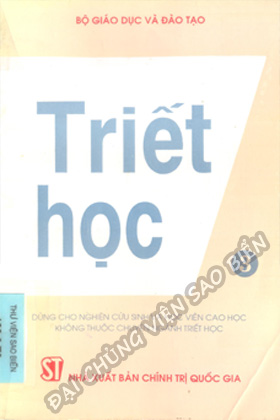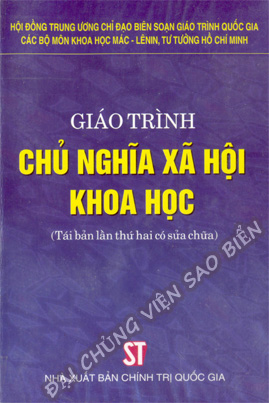| CONTENTS |
PAGE |
| New Introduction |
page 1 |
| Introduction |
11 |
| CHAPTER ONE: HEGEL AND MARX |
15 |
| I. Hegel and Marx in Opposition |
17 |
| 1. The Religious Motif in Hegel and the Activistic Atheism of Marx |
17 |
| 2. Political Accommodation in Hegel and Social Revolu-tion in Marx |
19 |
| 3. Phylosophy as Retrospective Evaluation: Phylosophy as Contemporary Social Activity |
22 |
| 4. Systematic Philosophical Idealism versus Scientific Materialism |
28 |
| 5. History as the Autobiography of God: History as the Pursuit of Human Ends |
36 |
| II. Hegel and Marx in Continuity |
41 |
| 1. Opposition to Social Atomism |
41 |
| 2. Rejection of Abstract Ethical Idealism |
47 |
| 3. The Centrality of the Process in Hegel and Marx |
54 |
| 4. End in Hegel and Ends in Marx |
56 |
| III. The Dialectical Method in Hegel and Marx |
60 |
| 1. Defects of the Dialectical Method in Hegel |
61 |
| 2. Dialectic a the Logic of Totality in Marx |
62 |
| 3. The Dialectic as the Principle of Activity |
64 |
| 3. Dialectic as the "Algebra of Revolution" |
74 |
| 5. Dialectic and Nature |
75 |
| CHAPTER TWO: THE YOUNG-HEGELIANS AND KARL MARX |
77 |
| I. The Pantheistic Humanism of Strauss |
78 |
| 1. The "Mythical" Interpretation of Religion |
82 |
| 2. The Social Absolute and Man-God in Strauss |
84 |
| 3. Strauss' Philosophy of History |
87 |
| 4. Strauss and Marx |
88 |
| 5. The Revolutionary Theology of Bruno Bauer |
89 |
| 6. Bauer's Radica Atheism |
93 |
| 7. The Terrorism of Reason |
95 |
| CHAPTER THREE: BRUNO BAUER AND KARL MARX |
98 |
| I. The Revolutionary Politics of Bruno Bauer |
98 |
| 1. Bauer's Anti-Liberalism |
98 |
| 2. Bauer and the Jewish Question |
100 |
| 3. Bauer and the Social Problem |
103 |
| 4. The Critical Spirit versus the Masses |
106 |
| 5. Sentimental Philanthropy as Social Reform |
107 |
| 6. Bauer's Historical Fatalism |
108 |
| II. Marx's Criticism of Bauer |
112 |
| 1. Bauer's Defective Social Psychology |
113 |
| 2. Bauer's Creative Idealism |
114 |
| 3. Solipsism and the Social Problem |
117 |
| 4. Historical Dynamics and the Masses |
119 |
| 5. Ideas and Interests |
121 |
| 6. The Beginnings of Historical Materialism |
123 |
| CHAPTER FOUR: ARNOLD RUGE AND KARL MARX |
126 |
| I. The Philosophy of Arnold Ruge |
127 |
| 1. Philosophy as Politics |
129 |
| 2. Literary Romanticism as Political Reaction |
132 |
| 3. The Anti-Historicism of the Historical School |
135 |
| 4. Poetry as Politics |
144 |
| 5. Above-the-Battle Neutralities |
147 |
| 6. "Partei ! Partei ! Wer sollte sie nicht nehmen!" |
149 |
| II. From Political Liberalism to Social Democracy |
152 |
| 1. Is Atheism a Religion? |
153 |
| 2. Tired Liberalism and Social Pessimism |
155 |
| 3. The Class State versus the Social State |
158 |
| 4. The Social Basis of the Class State |
160 |
| 5. Socialism and Politics |
162 |
| CHAPTER FIVE: MAX STIRNER AND KARL MARX |
165 |
| I. The Philosophy of Max Stirner |
165 |
| 1. Ideals as Illusions |
166 |
| 2. Social, All-too-Social |
168 |
| 3. Immoralism |
169 |
| 4. The Cult of the Ego |
171 |
| II. Marx's Criticism of Stirner |
173 |
| 1. The positive Aspects of Stirner's Work |
174 |
| 2. The Ego as an Abtraction |
176 |
| 3. Stirner's Subjectivism |
177 |
| 4. Stirner's Social Nominalism |
178 |
| 5. Egoistic Anarchism as Self-Defeating |
180 |
| 6. The Petty-Bourgeois Roots of Anarchism |
183 |
| CHAPTER SIX: MOSES HESS AND KARL MARX |
186 |
| I. The Philosophy of Moses Hess |
188 |
| 1. The Social Status of the German Intellectual |
189 |
| 2. Communism as Humanism |
193 |
| 3. Communism as the Ethics of Love |
196 |
| 4. "True Socialism" as Reactionary Socialism |
200 |
| 5. Communism and Nationalism |
202 |
| 6. Transition to Realism |
203 |
| II. Marx's Criticism of "True Socialism" |
205 |
| 1. Intransigent Theory and Reactionary Practice |
206 |
| 2. Socialism by Education or Socialism by Struggle |
208 |
| 3. Nature, All-too-Peaceful Nature |
213 |
| 4. Was Marx a "True Socialist"? |
217 |
| CHAPTER SEVEN: LUDWID FEUERBACH AND KARL MARX |
220 |
| I. Feuerbach's Method |
223 |
| II. Feuerbach's Psychology of Religion |
243 |
| III. Feuerbach's Philosophy of Religion |
251 |
| IV. Feuerbach's Philosophy of Anthropomorphism |
254 |
| 1. Man as the Measure of All Things |
256 |
| 2. Metaphysics as Esoteric Psychology |
259 |
| 3. The Social Nature of Truth |
260 |
| 4. Realism or Conventionalism |
264 |
| V. Feuerbach's "Degenerate" Sensationalism |
267 |
| CHAPTER EIGHT: KARL MARX AND FEUERBACH |
272 |
| 1. Thesis I. Ideas |
273 |
| 2. Thesis II. Truth |
281 |
| 3. Thesis III. Action |
286 |
| 4. Thesis IV. Religion |
291 |
| 5. Thesis V. Perception |
293 |
| 6. Thesis VI and VII. Religion and Society |
296 |
| 7. Thesis VIII. Intelligibility |
298 |
| 8. Thesis IX and X. The Old and New Materialisms |
299 |
| 9. Thesis XI. Philosophy |
303 |
| Appendix I. Marx on Kant and Political Liberalism |
308 |
| Appendix I. Marx on Hegel's "Concrete Universal" |
312 |
| Appendix III. Marx on Bentham and Utilitarianism |
315 |
| Index |
323 |









